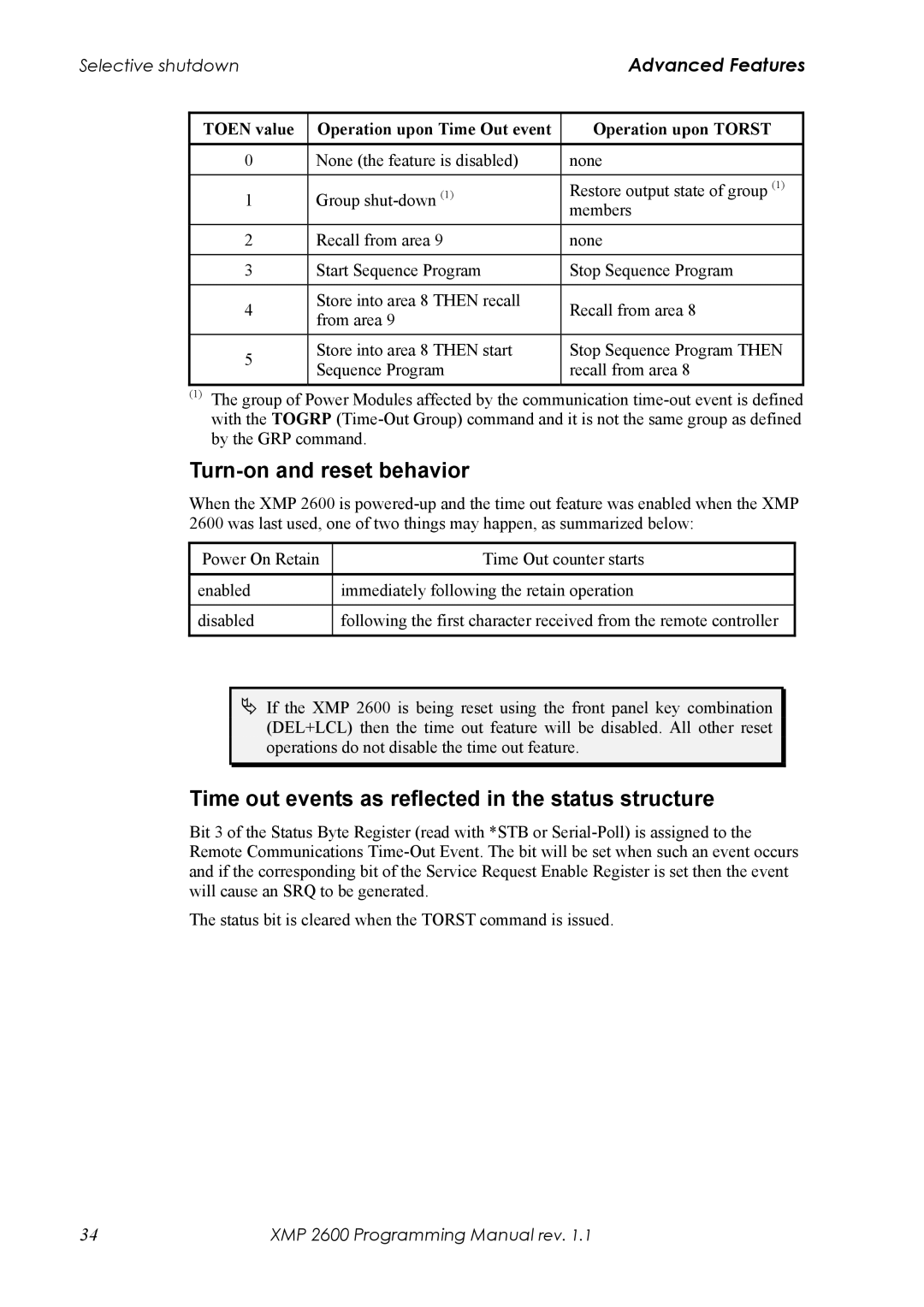
Selective shutdown | Advanced Features |
TOEN value | Operation upon Time Out event | Operation upon TORST | ||
|
|
| ||
0 | None (the feature is disabled) | none | ||
|
|
|
| |
1 | Group | (1) | Restore output state of group (1) | |
| members | |||
|
|
| ||
|
|
| ||
2 | Recall from area 9 | none | ||
|
|
| ||
3 | Start Sequence Program | Stop Sequence Program | ||
|
|
| ||
4 | Store into area 8 THEN recall | Recall from area 8 | ||
from area 9 |
| |||
|
|
| ||
|
|
| ||
5 | Store into area 8 THEN start | Stop Sequence Program THEN | ||
Sequence Program | recall from area 8 | |||
| ||||
|
|
|
| |
(1)The group of Power Modules affected by the communication
Turn-on and reset behavior
When the XMP 2600 is
2600 was last used, one of two things may happen, as summarized below:
Power On Retain | Time Out counter starts |
|
|
enabled | immediately following the retain operation |
|
|
disabled | following the first character received from the remote controller |
|
|
If the XMP 2600 is being reset using the front panel key combination (DEL+LCL) then the time out feature will be disabled. All other reset operations do not disable the time out feature.
Time out events as reflected in the status structure
Bit 3 of the Status Byte Register (read with *STB or
The status bit is cleared when the TORST command is issued.
34 | XMP 2600 Programming Manual rev. 1.1 |
